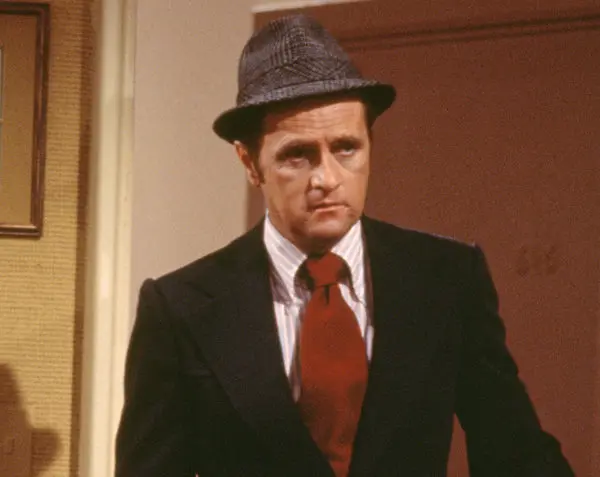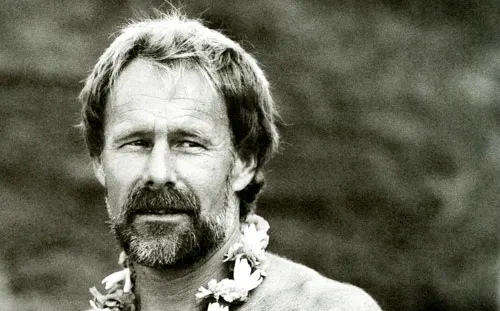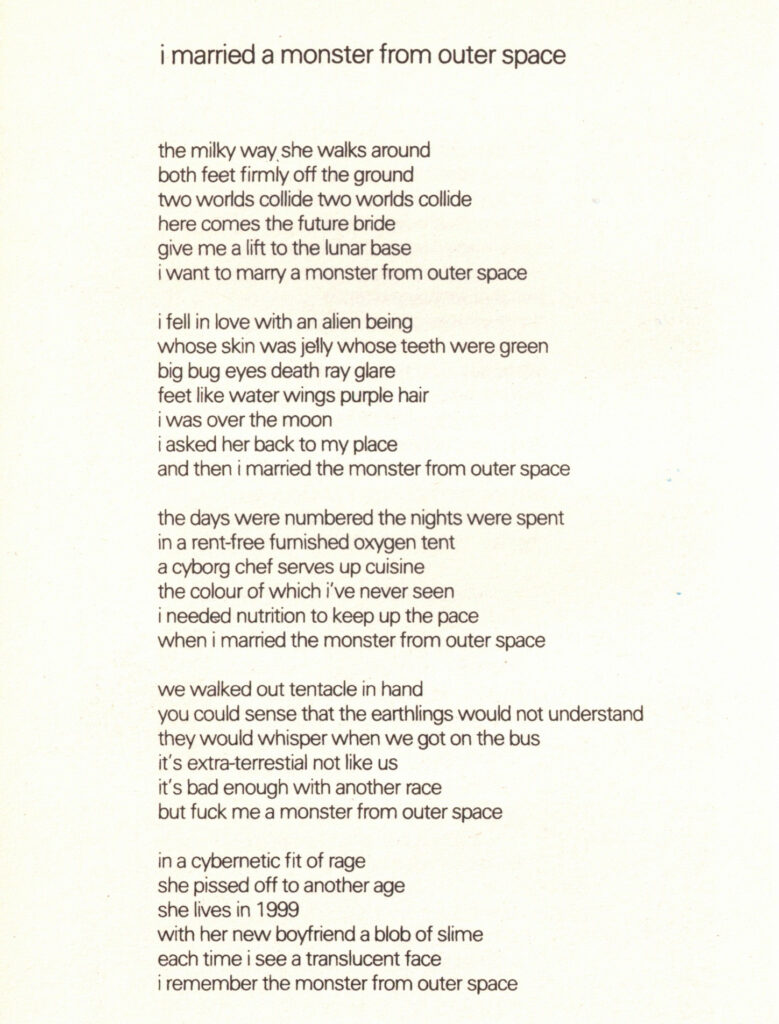Category: Engaging
9/5/1929 – 7/18/2024

From Cantos for James Michener
From: The Baffler
XCVI.
He wasn’t sure how the bathroom mirror worked
but decided it must be powered
by the razor blades and aspirin
he found in the engine compartment.
It was a matter of relearning everything
after he surfaced from the coma.
The hospital chapel had bought a battered
fog machine from a local heavy metal band
that broke up after disagreements about
Viking iconography.
Sitting in the back row, he began to pray
for his hospital roommate, who was suffering
under the byzantine complexity of back pain.
He said it felt like he was laying
on top of an architect’s model of a small town
whose five-storey bank building commanded
a view of the plains.
Clouds of steam drifted around his ankles.
CI.
The jets move slowly through the sky like they’ll never
reach Denver or wherever they’re going,
and I have the feeling that people are high fiving nearby,
spontaneously, like a saloon brawl where everyone
suddenly starts fighting as if each man has
a preconscious knowledge of which side he’s on
when he enters a crowded room.
And this fight starts with a Polish joke that a man
at the bar begins to tell, but it’s not funny
as it concerns a stillborn child and an alcoholic
slain by the last European wolf, and even after
three hours there is no punchline in sight.
When he reaches the part where a Polish scientist
who has been navigating through millimeters of wilderness
discovers sub-atomic temples in a rust sample,
none of the men are listening,
they are thinking about their own childhoods
about the deep embarrassment of scoring on your own team
and the view from falling behind.
CII.
The waiting room across the hall was filled
with hostile stepsons.
He was studying their faces when his favorite nurse
came in to show him an x-ray of a scarecrow
she had found in the chapel.
Someone had written “the unborn God
of the C8H17NO4S Indians” on the bottom.
“Here, this pill should make you feel like a turtle
tangled up in a dry cleaning bag.”
The nurses are so beautiful, he thought
Try to remember that they are covered in germs.
CV.
He woke up at 12:34 and saw the Mirrornauts
standing by the full-length mirror in their chrome uniforms.
Their scouts had already crossed. They were going to war
on the other side. To fight for the stranger’s right to know,
for the models in the picture that comes with the frame,
and all others who seek freedom from liberty
and movies about movies about movies.
“The room in the mirror is full of carbon monoxide.
That’s why we cannot pass without these chrome suits.
If the other side looks identical, study closely,
you’ll see an object that’s not in the room
you’re standing in. Like a lute on the dresser,
partially hidden by compacts and atomizers.”
The Mirrornauts vanished into the glass.
We are living in unwritten Bible stories, he thought.
That God created forest clearings
so he could spy on the Indians.
CIX.
The Smokers were encamped on a rivulet in the south forty.
Their leader, a tall housewife decorated with medals from the
Virginia and North Carolina state legislatures, sucked on a
menthol 100 as she scanned the cured fields.
I whistled when I got within earshot to let them know
I was coming. The Smoker children ran out to meet me
and I passed out nicotine gum and colorful matchbooks.
I lit up and approached the oak tree where the leader’s
tent was pitched. She stared at me contemptuously as she
opened her bathrobe. I sucked on each breast for a second
and then she motioned for me to sit on the beer chest.
It was my land they were camping on but it sure didn’t
feel like it. She stuck a cigarette in her mouth and I
jumped up to light it.
“Sit down,” she said. “Did you bring the scratch tickets?”
“Here they are.”
“What are they saying in town?”
“There are rumors of a sale.”
CXVII.
Deep within the interior of a Polish joke
where time slowly reduces the stairs into ramps
and men with hospital haircuts sit in focus groups
discussing the algebra of back pain
and the “Power of Not Caring.”
Here in some mother-in-law’s version of Poland
where even the magicians are regulated by the state.
He walked to the window and said
“Night, you fucking challenger, here I am.”
Through the mirror he heard the warcry
of the C8H17NO4S Indians.
His back hurt.
CXXVI.
From our upstairs porch I watch my neighbor, a small town accountant with a voice like a toy keyboard, begin his walk to work in his navy blue Botany 500 suit, bought used in an L.A. consignment store while visiting his widower son-in-law and blind granddaughter, and according to my neighbor, formerly owned by Gene Rayburn, the semi-retired game show host whose grotesque aura still haunts the seven o’clock time slots of my body’s internal clock along with Merv Griffin, Don Rickles, Cloris Leachman, Bert Convy, Wink Martindale and the tenants of every Hollywood square, those horrible hucksters, sickening adults/hyenas who seem to have had their proteges on every Main Street, the men with perms, tight gray curls erupting over the alcoholic topography of their oiled faces, a legion of salesmen ruined by bad translations of an already disastrous California ideal, their eyes stinking like boiled cocktail onions as they emerged from “sleek” 1980 Thunderbirds, all marinated teeth and snowplow mustaches, fresh from invigorating divorces, dragging tawny S-shaped girlfriends by the wrist to wooden gargoyle waterbeds where stereo systems built into the headboards played “Eye in the Sky” by the Alan Parsons Project endlessly through the night.
These men quietly disappeared sometime during the first Reagan Administration. If the Mirrornauts did come for them, then they must have leapt down through the bedroom ceilings, and the men must have woken up screaming as their carpeting was ripped up, the aquariums smashed with baseball bats, and then angry, insane, “my ex-wife is behind this isn’t she,” obscure cuss words, now lost to us, spilling out of their fat mouths.
CXXXII.
Inside an abandoned spa
where Swiss hardcore kids squat in polar rooms
underneath fountains of careless feedback,
or within the funeral home’s fusebox
that operates the violet shadows on the lawn
and the digital eyes of an elk head
bolted above the respirating fireplace,
you, on the edge of rainshot shadows,
con the world into lamenting anything
until no one can recall how the true stories end.
If it existed, we’d be used to it already,
the dream of important mail
like trumpets crashing into men
or oceans cruising through the furious night
while lonely seaside dentists hasten
to incorporate chocolate towers
into their huge immovable desserts.
If we are lured into violent matinees
we are only acting as the agents of coin circulation.
Like stuffed animals sharing coffee in the dorms,
or interstate median castaways with wild children,
we are all auditioning for a newish testament
where perfect kids ride pedestals of surf onto the beach
and Lake Speed’s legendary hair rots
west of the redrock balconies and neutral horses
with fiery games.
CXVI.
A man walks into a bar at sunset, takes his hat off and wipes his brow with the back of his shirtsleeve.
“After a hard day’s work you deserve a cold beer,” said the bartender.
“Gimme a cold beer,” he said. “It’s been a long day but it’s all worth it now.”
The rest of the work crew walked into the bar.
“We’ve been working hard and now working time is through,” they said. “There’s nothing like a cold beer when all is said and done.”
“Man this beer hits the spot,” said one, “all day long, while I was working, I was imagining how good this was gonna taste.”
“Yeah, there’s nothing like an ice cold beer after a hard day’s work,” said another.
CLI.
A mutt barks at the service entrance
as the foursome, still using their bridge game aliases,
climb up to the bedrooms.
A computer would jam under all the distractions
in a watchdogs eye or, scrolling through a long list
of contemporary enemies (headed by “shape shifters”),
never recognize the Smokers as they scale
the award-winning garden walls.
North goes down on East and the branches out the window
shift like scars on a toymaker’s hand.
When he’s finished he gets up and walks to the bathroom
where a Smoker is waiting and beats him until
his body is rich with contusions.
“Getting hurt makes a doctor a better doctor,” he mutters
as he climbs out the open window.
The Writer in America Ross MacDonald
Sam Peckinpah: Man of Iron
Beyond Sunset
Derek Hynd profiles Roger Erickson, the gladiator of Waimea.

Tom Carroll returned home two seasons ago from Hawaii with a ginger-colored beard. “Just like Roger Erickson’s,” as Tom put it. It smacked of hero worship. The beard came off after a week of sloppy surf, but the intrigue remained.
Last winter, walking into the Sunset Store on Oahu, I saw that Roger Erickson had signed a one-man protest next to his name on the list of Eddie Aikau Invitational invitees, pledging $15,000 to charity if he won. I’d already heard stories, opinions and predictions about him—some good, some strange. No one really knows how he operated so powerfully on his own.
Then, a big moment.
Roger was running on the soft sand between Rocky Point and Pipeline, when he angled up to the Pupukea deck that held Flippy Hoffman, Fred Van Dyke and myself. Thundery things filled me, in the face of a man who looked so nice, yet so deadly. He was 41, with a gladiator’s build, but his eyes had it all: life, death, and wisdom. Here was power, in mind and body. A defined human being. We met. Suddenly, I wanted a beard.
Playa del Rey, Los Angeles. Summer of ’65. “It was the best year of my life. Everything was coming together: a year out of high school, double-dating at the drive-in, racing at Lyon’s Drag Strip, surfing and hanging out on the beach—all that stuff. In ’66, it all fell apart.” Roger pauses. “I joined the Marines to avoid being conscripted. I didn’t want bad training if I was going to Vietnam.”
Fresh out of boot camp, Roger married his high school love, and honeymooned in Hawaii. “Just me and my girl, living at Rocky Point. I surfed big Sunset and Waimea, and she was there when I got out.” Two weeks after that, Roger sailed out of San Diego in early morning darkness. “I remember looking over the railing of the boat, smoking my bowl of pot, thinking, ‘Man, what am I doing?’ I’d just left my whole life behind. I actually thought about jumping off.”
On February 6, 1967, he entered another world. Da Nang fist, then southwest to Hill 55. On the way, a sniper nearly picked Roger off. It got him excited. He volunteered to go on point. Nobody did that.
On quiet nights, Roger thought about the beauty in everything he saw, and thought about his recent past. “I knew better, but at times it was all so serene out there. And with emotions running through you, you’re trying to relate to your life back home, and for me it was . . . ‘What’s she doing now? What is she doing now?’ That was my overriding emotion all through Vietnam.”
Roger’s squad was under fire and in retreat, up by Hill 55. “A bullet came so close to my head that I felt it pass, and at that point I got so focused returning fire that I lost track of time. When I finally turned around, everyone was gone. It was just me. I saw movement, and retreated through the field, started running, and a mortar landed between my legs. It didn’t go off.”
Another time, Roger saved the life of a friend who’d tripped a mine. Roger was injured as well, but not as badly. He dove on his burning friend, smothered the fire, then collapsed. Earned himself a Bronze Star.
The war just kept coming. Out of the infirmary, Roger was airlifted straight to Khe Sanh. It was quiet when he arrived, but was soon to become one of the heaviest battlefields in military history, with Roger in the middle. Everything was chance, from taking a shit, to sleeping, to going on point. It rained two days out of five. Jungle rot was everywhere, and plagues of mosquitoes descended and devoured. He was truly in hell now, and interest began to fade. His own description: “I was a walking zombie.”
Late in ’67, Roger got his R&R pass, along with malaria. By the time he arrived back at Da Nang for the trip to Hawaii, he was nothing but shakes, sweats, and chills. “Somehow I hid my condition, because I didn’t want to get put in the hospital again. As soon as we got to Honolulu, I jumped the first plane home.”
Back in Playa del Rey, everything had changed. Incredibly, just 10 months had passed since he’d left. Roger was 21. He spent five days in town, three of them in bed. People avoided him. The word went something like, “Roger’s back from Vietnam, and he’s twisted.” He smelled like the bush, and looked out of his mind. His wife had split, hippied out in paisley and granny glasses. “It didn’t matter by that point. The way I figured it, I was going back in at Khe Sanh, and wouldn’t be coming out. You can’t imagine how sick I was at that point—in every way.”
After returning to Da Nang, Roger spent a month in the hospital, and then sure enough was ordered to Khe Sanh—where the hell he’d experienced before soon expanded tenfold. After walking in the jungle for two days on patrol, Roger was on his way back to camp when the North Vietnamese launched the Tet Offensive. The world had never seen a battle like it. Hill 881 was no more, and Khe Sanh became the most crater-ridden location in history. Survival itself was a ridiculous longshot. Survival followed by a return to normalcy was a complete impossibility.
Playa del Rey. Summer of ’68. “I was the decorated Vietnam Marine, back in town, and I was meant to set a good example. I surfed, but basically I was racing bikes. My forte was going as fast as I could. I remember flying down Imperial, near LAX. The police were on me, and that got me all jazzed. I had a couple of outstanding tickets, and no license, so I went for it. Here come the sirens, and all I could think of was, ‘Wow, unreal! If I get through the tunnel up there, I can escape.’ But they ran me down on the curve past the tunnel. I took the corner so fast—had my back wheel on the edge of the gutter, riding out the curve. They threw me in jail for two weeks.”
By 1969, Roger had a dark reputation around town. The full impact of Vietnam had still not been felt in America, and any veteran who opened his mouth against what was happening was a Commie-lover. Few civilians saw the vets’ point of view, or knew of their problems.
Roger went deeper into his Easy Rider mode. At a Venice Beach concert that year, he saw an old biker getting billy-clubbed by several policeman. “I saw a friend in trouble, and starting running over. Hands down, totally passive, just wanted to try and settle things down. One of the cops saw me coming, and next thing the club was coming down on my head, then I’m fighting five or six of them.” Roger went to court, refused to plea-bargain, argued self-defense, and got a 10-month prison term for his troubles. Out in late 1970, he got into it with five bikers at a party in the middle of L.A.. One of them had a baseball bat. A busted arm and a fractured skull for Roger, and thereafter his involvement with bikers was terminated.
I learned all of this during a chess game with Roger, not long after we met. He wasn’t proud of his past. As Roger saw it, he’d had a destiny until Vietnam ripped it away. Not until the mid-’70s was he able to think about the future, and a challenge relative to Vietnam—a fresh test of mind and body, but this time by his own choice, on his own terms.
Roger knows the limits of human endurance in more ways than any other surfer. As he laid my king over on the chessboard, he slowly said that the flashpoint of his memory was no longer Khe Sanh. Now it was that afternoon in 1976, when he was a link in the human chain that saved big-wave surfer Kimo Hollinger from drowning during a huge swell at Waimea. As outstretched hands met, the point of contact burned into Roger’s soul: the difference between life and death.
Roger Erickson had a new destiny. He bought Kimo’s board.
Blaze Foley: Duct Tape Messiah
David Roe on the Bass
Over The Line…
Norm Macdonald – Billy Joe Shaver
The Holy Modal Rounders: Bound to Lose
John Cooper Clarke – i married a monster from outer space

